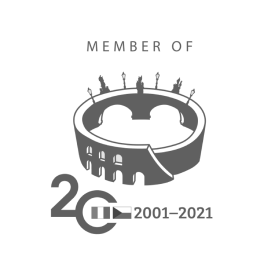
AIRBNB IN PRAGUE: BETWEEN RECOVERY AND CONTROVERSY IN THE HOUSING MARKET
After years of uncertainty caused by the COVID-19 pandemic, Prague’s short-term rental market has regained momentum. According to data from the Institute for Planning and Development (IPR), the number of available apartments on Airbnb has increased more than fivefold since the historic low of 2021. Although listings have not yet returned to pre-pandemic levels, growth is steady and significant: by summer 2024, there were approximately 9,000 active listings across the city. This surge not only signals the return of tourists but also shows how the short-term rental sector has evolved into a more structured and professionalised market. However, this recovery brings new challenges for residents in terms of housing availability and affordability, as the market shifts to prioritise tourism over long-term residential needs.
From Spare Rooms to Structured Business Models
The landscape of Airbnb hosting in Prague is undergoing a major transformation. In the past, many listings were managed by individual owners renting out a spare room or apartment occasionally. Today, that picture has undergone a dramatic change. IPR data reveals that while about 3,000 hosts are active in the city, two-thirds of them, so-called “single hosts”, control only 20% of the listings. The majority of the properties are now managed by hosts with five or more listings, often professional property management companies. “Airbnb is becoming increasingly commercialised, and this trend is especially visible in Prague,” explains Jan Sýkora, a housing market analyst. In 2019, the average host managed two properties. By 2024, that number has risen to three.” This indicates growing concentration among professionals, turning housing units into business assets rather than living spaces. According to Sýkora, these apartments are no longer homes—they are purely short-term rental units intended for tourists.
Higher Profits, Fewer Homes for Residents
The economic appeal of short-term rentals is undeniable. As Zuzana Benešová, founder of the agency Seven Keys, points out, landlords can earn 30–50% more through short-term rentals compared to traditional leases, depending on the location. This financial incentive is leading more landlords to withdraw their properties from the long-term rental market, contributing to a shrinking supply of homes for residents. Matěj Koutný of ČAPUS believes that the rise of professional operators could improve standards by ensuring better compliance with regulations and more consistent service. However, not everyone is convinced this is a positive development. Zdeňka Havlová, head of analysis at IPR, warns of the side effects: the growth of short-term rentals is driving up housing costs and fueling over-tourism in already crowded historic districts. The result is a city that is more expensive and less livable for its permanent residents.
A Historic Centre Overwhelmed by Tourism
While Airbnb listings can be found throughout Prague, their concentration in the historic centre has increased significantly. In 2019, 44% of listings were located in Prague 1 and 2. By 2024, this number had risen to 56%. This trend makes daily life more difficult for residents, who face increased noise, constant tourist traffic, and the gradual erosion of the local social fabric. Moreover, this issue intersects with an already critical housing situation: according to the 2024 Deloitte Property Index, Prague is the second least affordable city in Europe in terms of the ratio between income and housing costs, surpassed only by Amsterdam. The prevalence of short-term rentals in central areas further reduces the availability of permanent housing, worsening conditions for students, young families, and low-income workers.
Lack of Regulation and Ineffective Oversight
Despite the growing impact of short-term rentals on Prague’s housing market, regulation in the Czech Republic remains weak. Currently, there is no specific law governing tourist-oriented short-term rentals. According to building regulations, properties used for this purpose must be officially registered as accommodation facilities. In practice, however, inspections are rare, and authorities lack direct access to data from platforms like Airbnb. This lack of transparency makes effective enforcement nearly impossible, allowing room for tax evasion, unfair competition, and misuse of residential property. With the phenomenon continuing to grow, Prague now faces a crucial decision: whether to continue bearing the consequences of an unregulated short-term rental market or to implement clear regulations and enforcement tools that protect residents’ right to affordable and stable housing.
Sources: https://praguemorning.cz/




